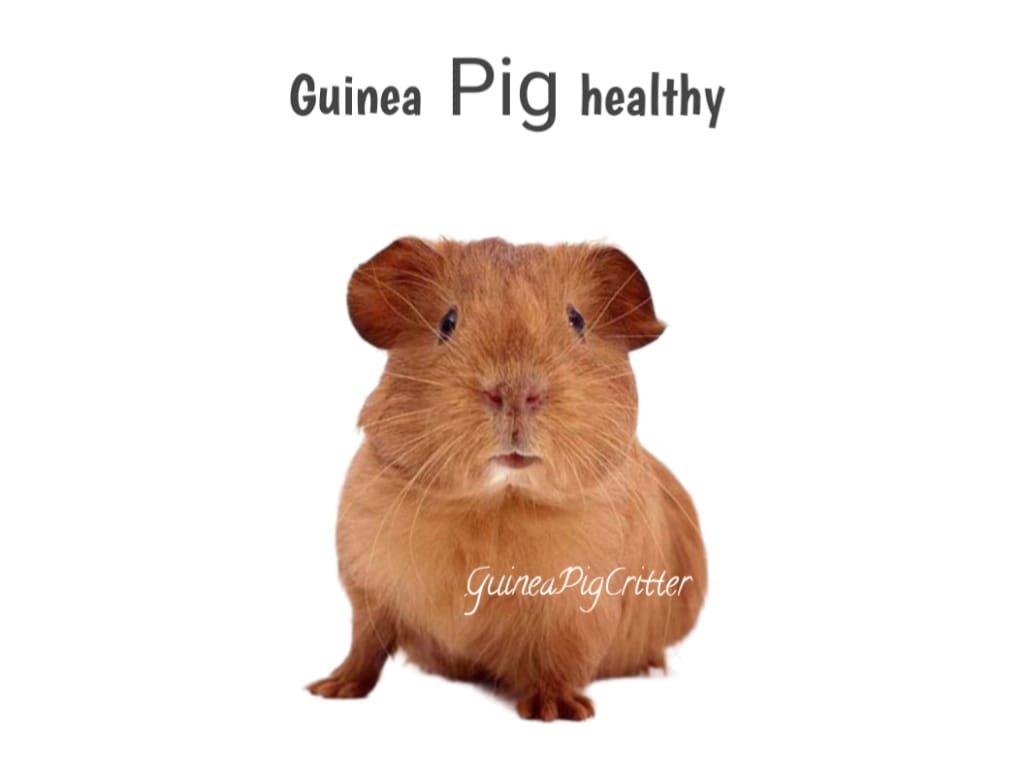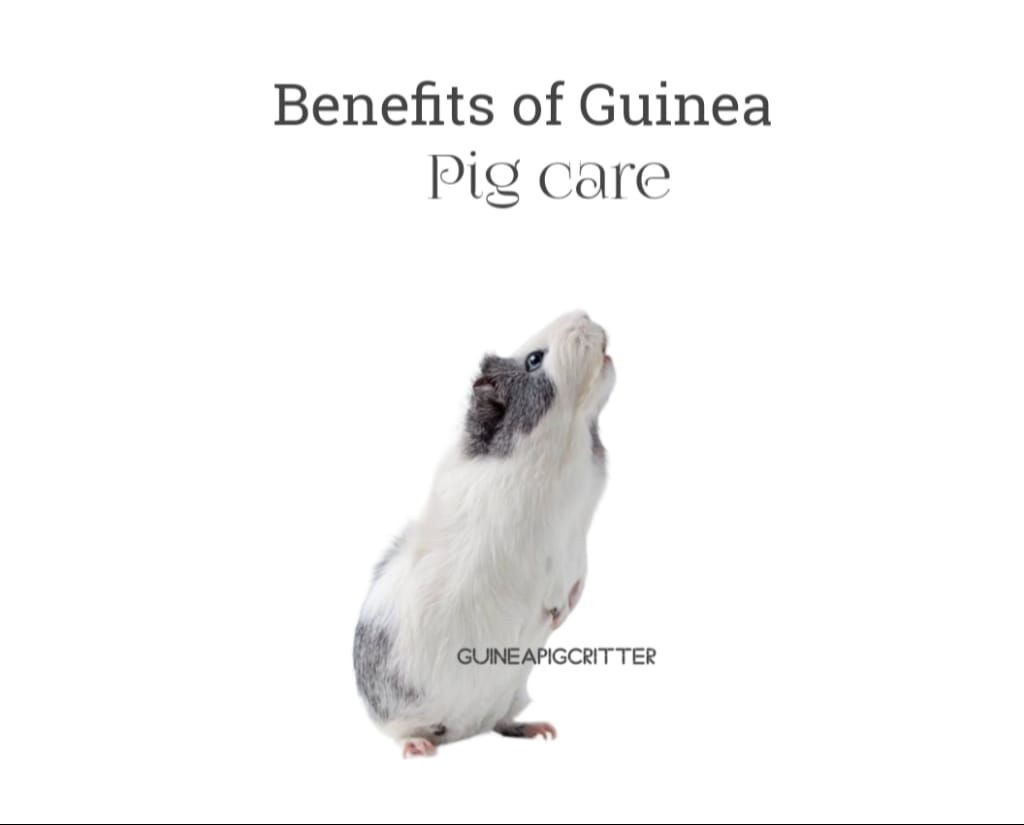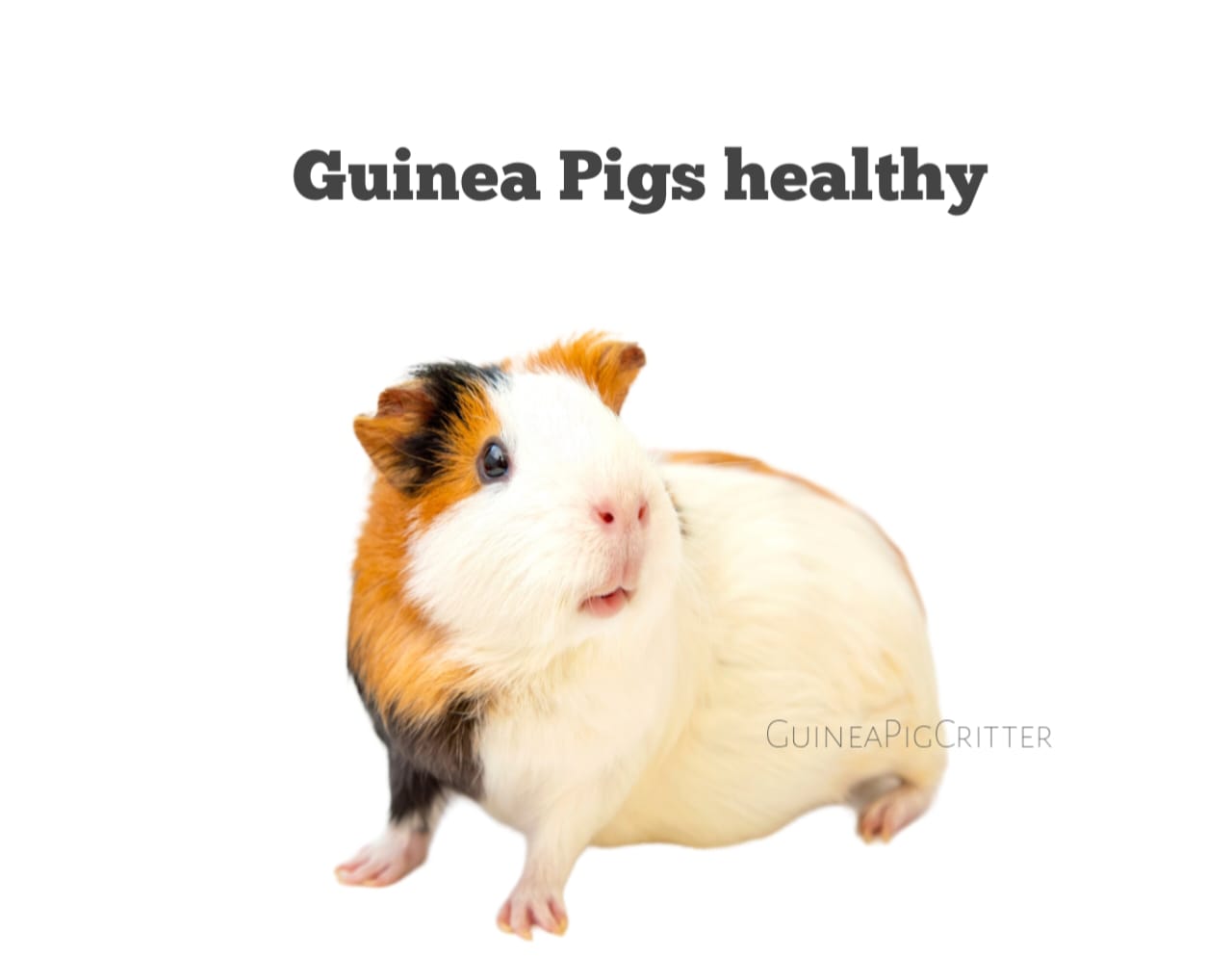This article will cover all aspects of feeding, exercise, grooming and medical care for them. These ideas are useful whether you are new at adopting a guinea pig or even if it is not your first time.
Hi! We will take you through the most exhausting guide to keep your guinea pig healthy. To ensure that your pet lives a happy long life, you must maintain its health and welfare.
Read this post :-Depressed guinea pig signs
Diet and nutrition
Balanced diet
Your guinea pig’s diet should be balanced in order to make it healthy. Hay should form the major part of their diet including; fruits pellets as well as fresh vegetables. On the other hand, hay which helps in digestion and wears away their teeth that grow continuously is vital. For adult guinea pigs timothy hay is recommended but alfalfa hay can be given to young ones because of high calcium content.
Fresh greens may be provided every day, but new food items have to be introduced gradually so as not to disrupt their digestive systems. They include romaine lettuce , kale , spinach among others other veggies like bell peppers, cucumbers and carrots can likewise be offered sparingly.
Less of their eaten food should consist of good quality guinea pig pellets that are supplemented with vitamin c. Don’t feed them muesli mixes because they can promote selective feeding and nutritional imbalance.
Water
Water should always be available to your pet guinea pigs in clean and fresh form. For this purpose, the best type is a bottle for drinking containing a sipper tube, which should have its contents replaced on a daily basis in order to keep it fresh. Check the water bottle frequently to ensure that it has not been blocked, and sanitize it weekly to impede bacteria growth.
Vitamin c
It means guinea pigs cannot make their own vitamin c; hence there is need for including foods rich in this vitamin or giving supplements. Alternatively peppers, chard or kale as well as broccoli can provide much needed amount. On the other hand, you might utilize vitamin c tablets designed especially for guinea pigs however avoid using drops into their water because it will degrade rapidly.
Foods to avoid
Some particular kinds of food are harmful for guinea pigs and should therefore be avoided. Iceberg lettuce has minimal nutrition value while being able to cause diarrhea. Other foods like potatoes, onions, garlic along with anything containing high sugar or fat levels must be dodged by so doing. Finally do not give your guinea pig chocolate, caffeine or alcohol as these may become toxic to them.
Importance of regular exercise
It is imperative to make sure that your guinea pig receives regular physical activity in order to maintain its body and mind. If these animals do not exercise enough, they can gain weight and develop such health complications as heart failures or diabetes. Moreover, physical movement helps to eliminate boredom that may lead to harmful behavior.
Exercise suggestions
Create a safe and large space for your guinea pig to explore freely and exercise extensively. Remove any hazards like electric cables or small objects that they might swallow. You can also include tunnels, ramps, and chewing toys for their entertainment as well as keeping them on the move always. Provide some supervised time outside their cages so they get more room for running around or playing games or even set up a playpen full of toys and activities.
Appropriate housing
Size and design of cages
The comfortability of your guinea pig is determined by ensuring it has adequate space where it can move freely within the cage. A good rule of thumb is to have at least 7.5 square feet for one guinea pig with more being better. Guinea pigs are not good climbers so avoid getting multi-level cages because they are prone to injuring themselves easily during climbing exercises.
A sense of safety can be provided by the presence of several hiding spots, including tunnels and igloos in the cage. To keep your guinea pig stimulated and happy, offer a range of bedding materials and play areas.
Cleanliness
It is very important to keep its cage clean for your guinea pig’s well-being. Regularly change the bedding and discard it as the buildup of ammonia from urine may lead to respiratory problems. Take out soiled bedding and droppings every day in order to ensure that you are spot cleaning; do this weekly. The cage, food dishes, and water bottle should be disinfected with a pet-safe cleaner.
Bedding
Use absorbent beddings such as paper based beddings or fleece liners which are soft on their bodies. Guinea pigs should not have cedar or pine shavings because they release aromatic oils that can harm them. Fleece liners are an environmentally friendly alternative that can be reused after they are washed. Paper-based bedding is disposable although highly absorbent and good at odor control.

Grooming and hygiene
Regular grooming
By brushing your guinea pig regularly, you will remove loose hair from its coat hence preventing matting especially for long-haired breeds. Use either a soft-bristled brush or small animal grooming gloves designed for pets like guinea pigs during regular brushing sessions. Additionally, frequent grooming opens up a chance for detecting any skin problems on your pet including abnormal Ness or parasites if any exist on its body parts
Nail cutting
Guinea pigs’ nails should be cut every few weeks to avoid overgrowth and discomfort. Be cautious when using nail clippers for small animals so that you do not cut the quick, which is the blood vessel within the nail. If you do not know how to clip their nails, ask your vet to demonstrate it for you. Ensuring that the nails are kept in a correct length will prevent them from curling thus causing pain or injury.
Bath time
These little pets don’t usually require baths more frequently as they can clean themselves well. In case it becomes necessary, use a pet-safe shampoo and make sure they dry completely afterwards to avoid chills. Frequent washing removes their skin’s natural oils resulting in skin dryness or irritation. Spot cleaning with a damp cloth is usually enough for minor messes.
Dental care
Teeth health
It is imperative that guinea pigs are provided with lots of hay and chew toys since their teeth grow continuously so as to allow them grind down naturally while guinea pigs have teeth that grow continuously, this is why giving plenty of hay and chew toys is important since they help wear them down naturally. Without proper wear, their teeth can become overgrown leading to pain and difficulty eating.
Chew toys
Your guinea pig’s teeth can be kept healthy by using safe chewable, untreated wood blocks, and cardboard. Avoid toys with small parts or sharp edges that might result in injuries. Change the toys periodically so as to keep your pet interested and committed.
Monitoring health
Routine care
Preventive care is important to maintain overall condition of a guinea pig. Keep track of changes in its behavior, coat quality, appetite and weight. Early identification of health problems increases chances for successful treatment.
Common symptoms of illness
Be on high alert for signs such as sneezing, coughing, being inactive, diarrhea and loss of appetite. Additional symptoms include discharge from eyes or nose, breathing difficulties and alteration in stool consistency. Never hesitate to inquire from a vet once you detect any symptoms.
Weight monitoring
Check your guinea pig’s weight weekly to identify sudden fluctuations which may indicate underlying health issues. An accurate record must be made every time its weight is measured using a small digital kitchen scale. Abnormal weight loss or gain may point out sickness or feeding concerns.
Veterinary care
Choosing a vet
Uncommonly regular veterinary check-ups
These check-ups should be done regularly to detect any emerging health problems at an early stage. These can be done by inquiring from other guinea pig owners and checking reviews online.
Irregular vaccinations and treatments
Annual or biannual veterinary visits are essential for the well-being of your guinea pig. These visits include a general physical examination, dental checks and updating vaccinations if necessary.
Treatments and inoculations
With your vet, discuss necessary immunizations as well as protection against parasites. Guinea pigs need very few vaccinations but regular parasite control is important to avoid mite infestation or lice.
Mental health & socialization
Friendship
Guinea pigs are social animals that enjoy living with companions. If possible, consider adopting them together in pairs or groups. The best combination is same-sex pairs or neutered males with females to prevent breeding. A friend will keep your guinea pig happy and reduce stress levels.
Enriching the environment
Set up an environment that has many toys, hiding places and things to chew on. Change toys every now and then so they never get bored. Interactive items like treat balls or tunnels help exercise the mind as well as the body during play time.
Handling and bonding
To cultivate trust and lessen stress, dedicate time to handling and interacting with your guinea pig. Be patient and kind to them as you adapt to the touch of your body’s flesh when it gets used away from its center. In case you have not found a way of giving them a treat through their hands, you can try feeding them by hand so that they associate you with good things. When picking up a guinea pig make sure that you always support its body weight.
Seasonal care tips
Winter care
Throughout colder times of the year, make sure there are no drafts in your guinea pig’s habitat to keep it warm. You can place extra dry beddings around the cage to trap heat or use small animal-safe heating pads if need be. Avoid placing your pet’s cage close to windows or doors where cold air enters.
Summer care
Ensure your guinea pig will not suffer from heatstroke by cooling down their living area. Offer fresh water generously while avoiding sunlight directly falling on the animal. Use fans or air conditioners to control room temperature levels comfortably enough for both humans and animals in them. For instance, frozen water bottles wrapped in towels may provide a cool spot for your guinea pigs so that they can lie next to.
See this post :-do guinea pigs need to be in pairs?
Emergency preparedness
First aid kit
If you have a guinea pig first aid kit, it should contain gauze, antiseptic, a digital thermometer and syringes to feed with. In addition there may be tweezers cotton swabs, and styptic powder for nail trims. These things can easily tackle minor accidents or health issues while you are on your way to the veterinary.
Emergencies signs
Be aware of emergency signs like having breathing difficulties, severe tiredness or bleeding. Also know when to get instant veterinary care. Other emergency signs include seizures, severe diarrhea or not being able to pass urine.
How to act
For this reason you need an action plan for emergencies that has your vet’s contact information and that of the animal hospital in case of emergencies. Make sure to keep this important data ready for quick access. With preparation time is saved during an emergency which will then facilitate immediate care of your guinea pigs as may be required.

Frequently asked questions
What about feeding times?
They should always have hay and water available while fresh vegetables and pellets should be given every day. It must be noted that their diet should be varied and balanced so as to meet their nutritional needs.
What am i supposed to do if my guinea pig stops eating?
If your guinea pig quits eating, it’s important to speak with a vet immediately since this could be a sign of critical health issue. In the meantime, try giving them their favorite foods and make sure they have access to fresh hay and water.
Can drafts make guinea pigs sick?
Yes, guinea pigs are prone to respiratory infections through drafts hence keep their living space devoid of abrupt temperature changes. Put their cage in a stable environment that is controlled for temperature away from both windows and doors.
How can i know if my guinea pig has too much weight?
Regularly weigh your guinea pig and consult your vet about healthy weight range. If you notice sudden increase in weight, it could indicate overfeeding or lack of exercise. Adjust their diet plan and more opportunities for physical activity should be provided.
What should happen if my guinea’s teeth become too long?
When your pet’s dental formulae are overgrown, reach out to your veterinarian. These overgrown teeth cause pain as well as problem while eating. The vet may need to trim its teeth off; he/she might also recommend some changes in its diet to avoid such issues next time.
Conclusion
To sum up, the process of taking care of a guinea pig involves close attention to what they eat, walks, hygiene and routine health checks. With these hints in mind, you can maintain your cavy’s well-being and happiness.
It is worth noting that a happy guinea pig is one that has been properly provided for and it will always be an important source of joy and companionship throughout the years to come.


